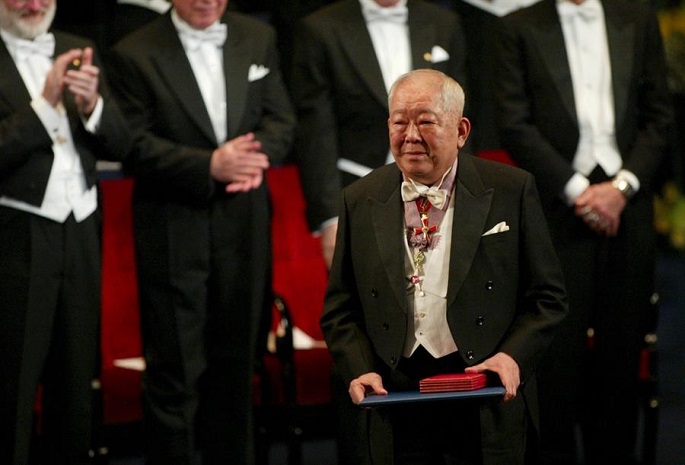Japanese Nobel laureate Koshiba passes away
Published : 13 Nov 2020, 11:58
The Japanese joint winner of the 2002 Nobel Prize in Physics, Masatoshi Koshiba, died on Thursday night at the age of 94 in a Tokyo hospital, national broadcaster NHK reported on Friday, reported EFE-EPA.
Born in September, 1926 in the city of Toyohashi, on the eastern coast of central Japan, Koshiba graduated from the University of Tokyo College of Science in 1951 and earned his Ph.D in physics from the University of Rochester, New York, United States, four years later.
In the 1980s he constructed an underground observatory in a zinc mine with an enormous water tank in Kamioka – which currently makes up the city of Hida after its integration with Furukawa – known in Japanese as the Kamiokande, designed to study solar and atmospheric neutrinos (subatomic particles).
Research carried out by Koshiba with Kamiokande confirmed Raymond Davis Jr.’s discovery that neutrinos came from the sun when in Feb. 27, 1987, some of these subatomic particles emitted from a supernova explosion were detected by the Japanese researcher, according to the Nobel website.
“It was the first clear observation of neutrinos produced outside our galaxy,” it said.
A professor for more than a decade at the University of Tokyo, Koshiba received the Nobel Prize in Physics in 2002 alongside Americans Davis Jr. and Riccardo Giacconi "for pioneering contributions to astrophysics, in particular for the detection of cosmic neutrinos."
Koshiba’s work paved the way for the establishment of the field of neutrino astronomy research.
He was also awarded the Humboldt Prize in 1997, the Wolf Prize in Physics in 2000, the Panofsky Prize in 2002 and the Benjamin Franklin Medal in Physics in 2003.
Koshiba received the Order of Merit of Germany in 1985, the Japanese Order of Culture in 1997, was elected fellow of the American Physical Society in 2002, and awarded national decoration with Grand Cordon of the Order of the Rising Sun in 2003.
He had a hall named after him at the University of Tokyo and was given honorary citizenship of Suginami and Tokyo.
Koshiba's family plans to hold a private funeral, according to NHK.


